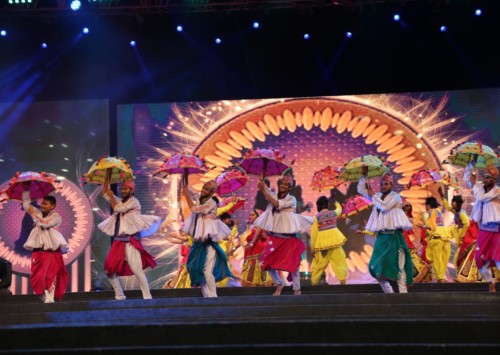Ecological effects of idol immersions
Navratri celebrations just concluded in India. The nine days of worshipping, singing, dancing, feasting and fasting ended on the tenth day with immersion of idols of Goddess Durga in the holy Yamuna River. While many people remain oblivious to issues pertaining to pollution, many have started using eco-friendly methods.
On the last day of the Navratri, a period of religious festivities in India, hundreds of idols were immersed on seven Yamuna banks across the National capital, New Delhi. The immersion of non-biodegradable items further added to the already polluted water-stream. Despite the indifference of many devotees towards issues like water pollution, many went off-route and opted for newer and eco-friendly ways of performing the rituals.
Certain authorities and devotees opted to switch to idols made of clay or mud, painted with vegetable dyes. These dissolve in water quicklyas against the usual idols made of Plaster of Paris (POP). POP takes several months or even close to a year to dissolve in water. Moreover, these idols are coloured with chemical paints which contain metals such as mercury and lead, thus adding to water pollution.
To act against this ill,caused by the rituals, residents of Chittranjan Park (CR Park), a locality which celebrates the festival on a grand scale in the capital, chose different ways.Talking on the methods adopted, Rachel Ratan, a resident told us, “Keeping in mind the pollution, everything is made out of environment-friendly material like jute, paper mesh, card boards etc. Some pandals in CR Park practiced eco-friendly ways of immersions by immersing idols in pits in parks or in water tanks and recycling the water later.”
Pandals, or marquees, now have artificial ponds or sinks where devotes immerse the idols, this step being an eco-friendly alternative.
It’s not just at local level that the issue is being catered to. The Delhi Pollution Control Committee (DPCC) will analyse the impact of the immersions to the water stream by checking pre and post water quality of the River Yamuna. The authority will measure the Dissolved Oxygen (DO) and contamination levels, an Indian daily reported an official saying.
In the past, authorities have also taken steps like putting up sign boards saying “Don’t immerse idols in lakes” on routes leading to reservoirs where devotes would usually gather on festivals.
Besides idols, the festive decorations too cause pollution. There is a huge threat to the rivers from the immersion of plastic ornaments that are used to decorate temples and pandals. These decorations are either immersed separately or with the idols. Disposing these off in bins doesn’t remain an option for those who consider these non-biodegradable products of sacred significance.
The metals, oily substances and synthetic chemicals add to the acid content of water and increase the TDS (Total Dissolved Solids). While with increasing awareness, people have now formulated the concept of ‘green pandals’ and ‘green idols’, more precautionary measures need to be taken to ensure environmental safety during festive season.











